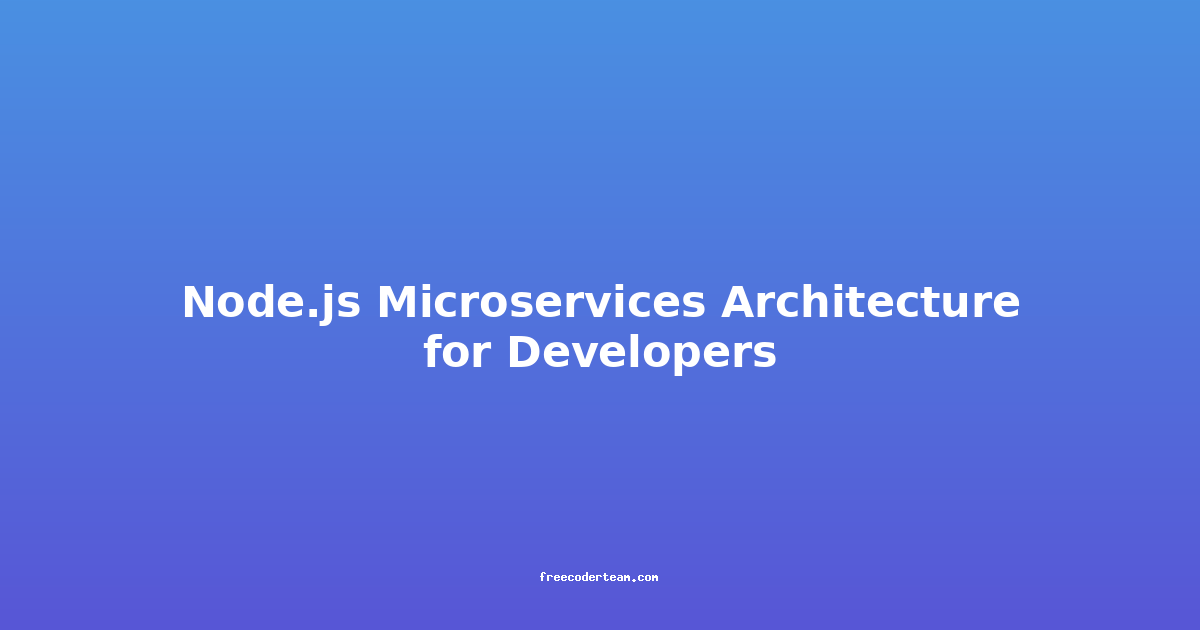PHP 8: New Features, Tips, and Tricks
PHP 8 was a major release that introduced several powerful features and improvements to the language. This update not only enhances performance but also provides developers with more expressive and concise ways to write code. In this blog post, we’ll explore some of the key features of PHP 8, along with practical examples, best practices, and actionable insights.
Table of Contents
- Introduction to PHP 8
- PHP 8 Features Overview
- Best Practices and Tips
- Actionable Insights and Real-World Applications
- Conclusion
Introduction to PHP 8
PHP 8, released in November 2020, marked a significant advancement in the language. It brought several new features that improve type safety, readability, and performance. In this post, we’ll dive deep into these features, providing practical examples and insights to help you make the most of PHP 8.
PHP 8 Features Overview
1. Null Coalesce Operator (??) Enhancements
The Null Coalesce Operator (??) allows developers to provide a default value if a variable is null. In PHP 8, this operator was extended to support chaining, making it more powerful.
Example:
$username = $userData['username'] ?? $userData['email'] ?? 'Guest';
In this example, PHP will check if $userData['username'] is null. If it is, it will then check $userData['email']. If both are null, it will use the default value 'Guest'.
2. Union Types
Union Types allow a function or variable to accept multiple types. This enhances type safety and makes the code more expressive.
Example:
function greet($name): string {
if (is_string($name)) {
return "Hello, $name!";
} elseif ($name === null) {
return "Hello, Guest!";
}
throw new TypeError('Name must be a string or null');
}
// Using Union Types
function greetUnionTypes(mixed $name): string {
if (is_string($name) || $name === null) {
return "Hello, $name!";
}
throw new TypeError('Name must be a string or null');
}
In the second example, the greetUnionTypes function explicitly states that $name can be either a string or null, making the code more self-documenting.
3. Attributes
Attributes (also known as annotations in other languages) allow you to attach metadata to classes, methods, or properties. This feature is particularly useful for frameworks like Laravel or Symfony, where attributes can replace cumbersome configuration files.
Example:
#[Route("/home")]
class HomeController
{
#[Inject]
public function index(): string
{
return "Hello from HomeController!";
}
}
In this example, the #[Route("/home")] attribute defines a route for the HomeController, and the #[Inject] attribute indicates that the method should be injected with dependencies.
4. Match Expression
The match expression is a more concise and elegant alternative to switch statements. It is particularly useful for pattern matching.
Example:
$day = 3;
$message = match ($day) {
1 => 'Monday',
2 => 'Tuesday',
3 => 'Wednesday',
4 => 'Thursday',
5 => 'Friday',
6 => 'Saturday',
7 => 'Sunday',
default => 'Invalid day',
};
echo $message; // Output: Wednesday
The match expression is more readable and easier to maintain compared to traditional switch statements.
5. Named Arguments
Named Arguments allow you to pass function arguments by name, making the code more readable, especially for functions with many parameters.
Example:
function createUser(string $name, int $age, string $email): void
{
echo "Name: $name, Age: $age, Email: $email\n";
}
// Using Named Arguments
createUser(
name: 'John',
age: 30,
email: 'john@example.com'
);
In this example, the use of named arguments makes it clear which parameter corresponds to which value.
6. Constructor Property Promotion
Constructor Property Promotion simplifies the process of initializing class properties by reducing boilerplate code.
Example:
class User
{
public function __construct(
public string $name,
public int $age,
public string $email
) {
// No need for manual property assignment
}
}
In PHP 7, you would have to manually assign these properties within the constructor. With Constructor Property Promotion, the properties are automatically promoted to the class scope.
7. Faster Static Method Calls
PHP 8 optimizes static method calls, making them faster. This improvement is particularly beneficial for frameworks and libraries that rely heavily on static methods.
Example:
class Math
{
public static function add(int $a, int $b): int
{
return $a + $b;
}
}
echo Math::add(5, 10); // Output: 15
While the syntax remains the same, PHP 8 internally optimizes such calls for better performance.
Best Practices and Tips
1. Leveraging Union Types for Better Type Safety
Union Types can help catch type-related bugs early in development. By explicitly defining the types a function or variable can accept, you reduce the risk of runtime errors.
Example:
function processInput(mixed $input): void
{
if (is_string($input) || is_int($input)) {
// Process the input
} else {
throw new TypeError('Input must be a string or integer');
}
}
// Using Union Types
function processInputUnionTypes(string|int $input): void
{
// Process the input
}
In the second example, PHP will throw a TypeError if the input is neither a string nor an int.
2. Using Attributes for Cleaner Code
Attributes can significantly reduce boilerplate by replacing configuration files or complex annotations. They are especially useful for dependency injection and route definition.
Example:
#[Route("/login")]
class LoginController
{
#[Inject]
public function login(): string
{
return "Login page";
}
}
This example shows how attributes can simplify the configuration of routes and dependency injection.
3. Optimizing with Match Expressions
The match expression is not only more readable but also more efficient than traditional switch statements. It is a great choice for pattern matching scenarios.
Example:
$status = 'pending';
$message = match ($status) {
'pending' => 'Order is pending',
'shipped' => 'Order has been shipped',
'delivered' => 'Order has been delivered',
default => 'Unknown status',
};
echo $message; // Output: Order is pending
The match expression is particularly useful when dealing with multiple conditions and can make your code more maintainable.
Actionable Insights and Real-World Applications
1. Migrating Legacy Code to PHP 8
If you’re working with legacy code, gradually migrate to PHP 8 features. Start with small changes like using Union Types or Named Arguments, and then move on to more complex features like Attributes.
2. Performance Optimization
Take advantage of PHP 8’s performance improvements, especially if your application relies heavily on static method calls. Profiling your application can help identify areas where these optimizations can have the most impact.
3. Enhancing Code Readability
Features like Named Arguments and Constructor Property Promotion can make your code more readable and maintainable. Encourage your team to adopt these practices to improve overall code quality.
Conclusion
PHP 8 introduces a range of features that enhance both the developer experience and application performance. By leveraging Union Types for better type safety, using Attributes for cleaner code, and optimizing with Match Expressions, you can write more efficient and maintainable applications.
As you migrate to PHP 8, focus on adopting these new features in a thoughtful and incremental manner. Start with small changes and gradually integrate more advanced features as your team becomes comfortable with the new syntax and paradigms.
With PHP 8, you have the tools to build robust, scalable, and performant applications. Embrace these new features, and take your PHP projects to the next level!
Feel free to explore these features further and experiment with them in your projects. Happy coding! 🚀




